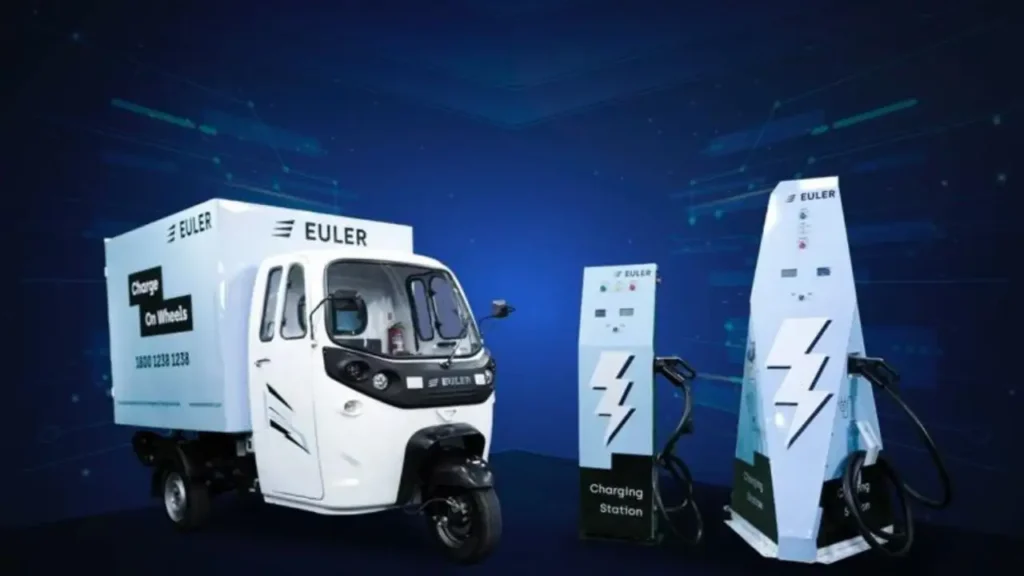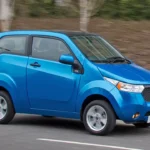Euler Motors, a promising electric vehicle (EV) startup focused on commercial cargo solutions, has emerged as a key name in India’s evolving clean mobility sector. Known for its innovative electric three-wheelers tailored for last-mile delivery, the company quickly gained attention from logistics giants and sustainability-focused investors. However, as the EV landscape becomes increasingly competitive, Euler Motors is now facing headwinds. A slowdown in fresh funding is hampering its ability to scale operations, expand into new markets, and meet surging demand.
A Strong Start in a Promising Segment
Founded with the vision of transforming urban cargo mobility, Euler Motors focused its efforts on building high-performance electric cargo vehicles capable of handling India’s road and weather conditions. The company’s EVs stood out for their long battery range, payload capacity, and cost-efficiency—attracting interest from e-commerce and logistics companies.
Its early success was driven by growing demand for sustainable last-mile delivery solutions and favorable regulatory support. With successful pilot programs and rising order volumes, Euler Motors appeared poised for rapid national expansion.
Funding Freeze Hits Growth Plans
Despite initial traction, Euler Motors now finds itself in a difficult financial climate. With venture capital funding tightening globally and investor focus shifting to profitability over pure growth, the startup is facing delays in raising new rounds of capital.
This funding crunch has directly impacted the company’s expansion goals. Plans to scale operations across multiple Indian cities, set up new assembly units, and ramp up production have been postponed or slowed. As a result, deliveries have lagged, dealership development has stalled, and operational growth is proceeding at a much more cautious pace.
For a company operating in a capital-intensive sector like electric vehicles, consistent funding is crucial—not just for production, but also for R&D, inventory management, and customer service infrastructure. Without fresh capital, Euler is being forced to streamline its operations and prioritize immediate profitability over longer-term growth.

Competitive Pressure Mounts
At a time when Euler Motors is recalibrating due to funding challenges, competitors are rapidly scaling their offerings. Major players in the electric three-wheeler market, including legacy manufacturers and new-age startups, are aggressively expanding their footprints. These rivals benefit from stronger financial backing and larger production capacities.
As a result, Euler risks losing its early-mover advantage in the commercial EV segment. Delays in fulfilling fleet orders or launching in new geographies could prompt potential customers to shift allegiance to competitors who are better equipped to meet scale and service demands.
Supply Chain and Production Impact
The slowdown in funding has also affected Euler’s supply chain and manufacturing capabilities. With limited working capital, the company has scaled back procurement volumes, leading to longer production cycles. Vehicle rollout schedules have become inconsistent, affecting dealership confidence and customer delivery timelines.
Furthermore, without adequate reserves, investing in advanced battery technologies, vehicle upgrades, or service infrastructure becomes challenging—at a time when the market demands innovation and high service standards.
A Strategic Pause or Long-Term Setback?
While the current slowdown is significant, it doesn’t spell the end of Euler Motors’ journey. The company still holds strong intellectual property, a respected product lineup, and valuable B2B partnerships. However, strategic clarity and decisive action will be essential to navigate this funding crunch.
Euler may need to shift focus toward achieving operational profitability in key markets, securing smaller bridge rounds, or exploring strategic alliances with OEMs or logistics players. A measured approach could help it stabilize, retain market share, and eventually resume its growth trajectory once the funding environment improves.
Conclusion: Resilience Required for the Road Ahead
Euler Motors remains a symbol of innovation in India’s electric cargo vehicle space, but the realities of a tightening funding landscape have forced it into a slower gear. To stay in the race, the company must adapt quickly—streamlining operations, solidifying partnerships, and staying laser-focused on its core value proposition. With resilience and strategic recalibration, Euler still has the potential to be a long-term player in India’s electric mobility revolution.







